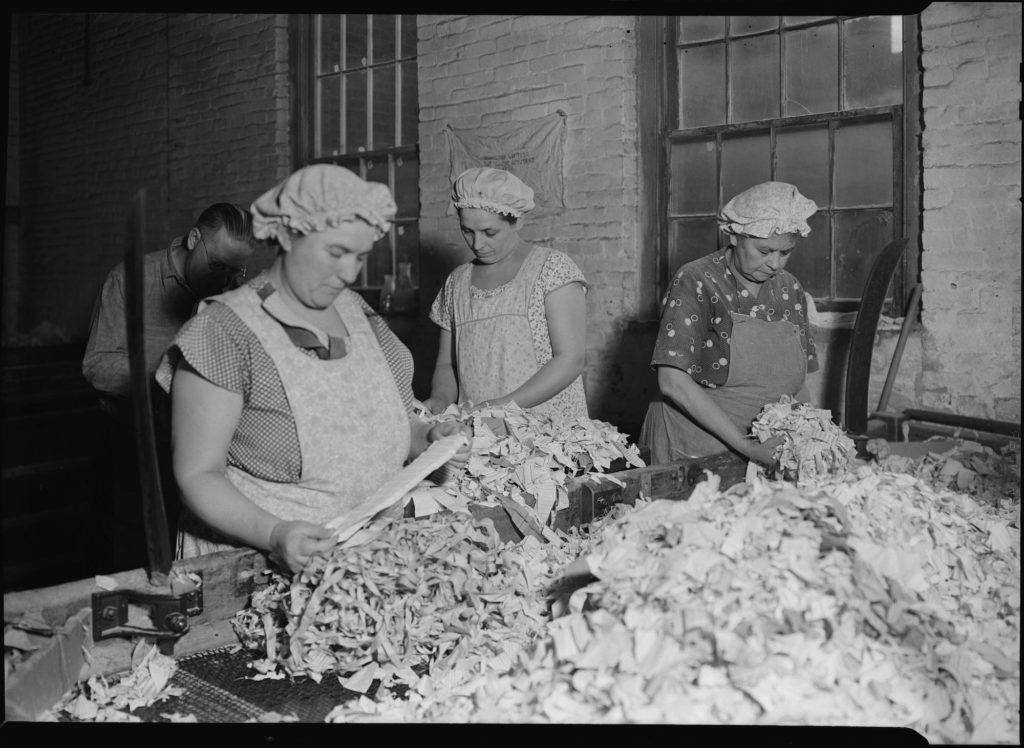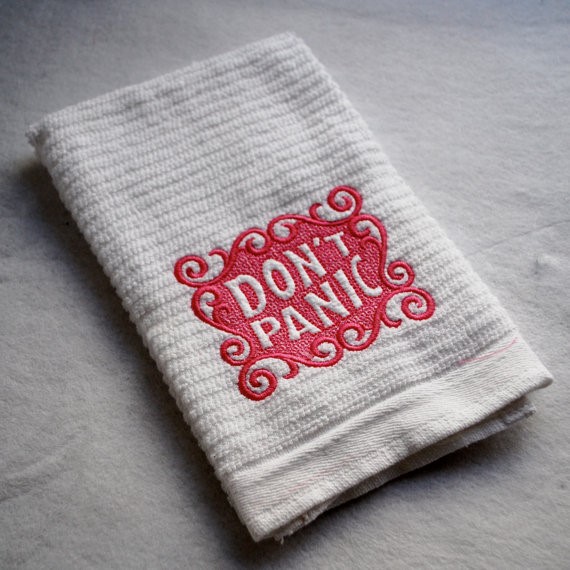Out there, somewhere, is a woman who writes about comics who wants to turn that writing to a comics dissertation or thesis, or at least I sure hope there is! The field is wide open and ready for more. For the uninitiated, a dissertation or thesis is the long essay or project that serves as the capstone for most advanced degrees (especially doctoral degrees) in the sciences and humanities. There is some degree of coursework or class-type work in most programs, but this is the project that determines whether or not you earn the degree. The nature and form of these projects has been under debate in recent years, but the actual production of some object that concludes the PhD remains a constant. The internet has worked alongside the fast-moving and collaborative nature of digital scholarship in general to jolt the usually slow-to-change academic establishment. By making wide varieties of information more available to a wider public and expanding the possibilities of collaboration, digital forms of scholarship have disturbed the idea of authority. This idea of authority is what allows some group to grant a degree to someone else. You can see why this sort of debate can be disturbing!
What I’ll talk about most here is writing about comics in a dissertation as opposed to writing a dissertation as a comic. Be warned: the minute you start pairing talk of “comics” and “dissertation” people are going to assume you’re writing a comic. For some of you, this will be a fantastic way to go. If your committee has trouble imagining your dissertation as a comic, you might point out Nick Sousanis’s recently published comics dissertation Unflattening. His process bringing the dissertation into comics form is lovingly documented all over the internet by academics and comics people alike, such as here, here, and here. Such a precedent is wonderful to present to a wary committee. If their hesitation comes from fears that you won’t be taken seriously, it’s nice to have a publication from Harvard University Press to point out. Of course, you should listen to your committee, more on them in a moment.
I, personally, want to see more dissertations with/about/using comics in a variety of fields, and I want everyone to have a good time. So, I’m going to offer you some advice. This particular set of advice features an emphasis on surviving a comics-centric humanities-based academic endeavor. I’ve survived it. You can, too, Woman Who Wants to Write about Comics in a Dissertation.
 Find Your Peers
Find Your Peers
If you want to use comics as your subject or a major player in your dissertation, you want find your comics-studying peers as quickly as you can. Especially if you are adding comics to some other academic field, you should start seeing out your comics-peers and comics study well before you are ready to dissertate. Don’t dive in half-ready. Besides doing diligent research on comics themselves, include a search for comics-related dissertations already around.
ComicsResearch.org maintains a list of comics-related dissertations and theses that anyone can access, but use the full power of your university library and databases to seek out a wide array of related projects before you begin your own. I can almost guarantee that you’ll learn something from the scope of the dissertations that have come before yours.
Extensive research before you begin in earnest can assuage what my friends call that feeling of “disencouragement” that comes when you find some work that looks a lot like your thing but not exactly like your thing. You want similar work that assures you you have something to add to an active conversation, not to find that you’re not as original as you thought! Doing this before you solidify your committee can help you figure out who you want on it, as well.
Find Your Committee/Pick Your Audience
The Dissertation Committee in most graduate programs is made of three or four senior scholars who already have the degree you are striving to earn. These people are the gatekeepers for your degree and the primary audience for your project. As such, it’s important to choose wisely. Not every program will have a faculty member that uses comics the same way you do in your work (some day I should write a post about choosing a graduate program).
 However, the committee will not necessarily be made of four people who could all write your dissertation. In my own committee, I had one person from the art department who understood comics from a design standpoint, one person who understood comics from the field of popular culture, and two other members who just took my word for it that comics matter in the world. They were on my committee because they had deep expertise in the part of the work that I use comics to talk about. In other words, you’ll have to find expertise that you can combine to form the best committee for you. Think of it as Academic Voltron: snap the pieces together firmly to avoid any mid-flight disasters.
However, the committee will not necessarily be made of four people who could all write your dissertation. In my own committee, I had one person from the art department who understood comics from a design standpoint, one person who understood comics from the field of popular culture, and two other members who just took my word for it that comics matter in the world. They were on my committee because they had deep expertise in the part of the work that I use comics to talk about. In other words, you’ll have to find expertise that you can combine to form the best committee for you. Think of it as Academic Voltron: snap the pieces together firmly to avoid any mid-flight disasters.
The head of the committee (the head of your Voltron) is the most important member. You want someone who plays well with other faculty and who has the most depth of knowledge around the particular project you are creating. You want an organized person who answers your emails in a reasonable amount of time and gives you critical feedback. You want them to challenge you. The rest of the committee follows this person. Make sure they are game for the kind of project you are pitching! You want this person to be comfortable criticizing your work and giving you a bit of a hard time. That makes it better. You also want someone who can understand why your work is of value. That makes it better, too.
Committees are hard to put together anyway, but sometimes committees on comics projects can be extra difficult. In the United States, we struggle mightily with a stigma around comics that not only marks them as lowbrow, but in the 1950s, as anti-academic and even anti-American. Many of the people in academia ow grew up around these ideas. Don’t shout them down! Listen to their objections carefully. Take their advice. Make your project better than they expect it is possible to be.
Form a Writing Group
 While you are struggling at the beginning of the project, be sure to put together a direct support system. Some writing groups are made up of other dissertation writers who just meet for coffee and commiserate with one another. That can be great! Some groups read each others’ work in progress and offer edits. My writing group did this, and it helped me. Not only did I get to learn about the study of yoga and the book of Jeremiah along the way (the projects of my two companions), I also benefited greatly from the fact that my fellows and I were working at around the same pace. We made sure we all kept up with the bureaucratic details and deadlines that have scuttled many projects.
While you are struggling at the beginning of the project, be sure to put together a direct support system. Some writing groups are made up of other dissertation writers who just meet for coffee and commiserate with one another. That can be great! Some groups read each others’ work in progress and offer edits. My writing group did this, and it helped me. Not only did I get to learn about the study of yoga and the book of Jeremiah along the way (the projects of my two companions), I also benefited greatly from the fact that my fellows and I were working at around the same pace. We made sure we all kept up with the bureaucratic details and deadlines that have scuttled many projects.
Support for your comics project can come from other areas, too. Your writing group might be gleaned from a group of fellow fans or people you find through social media who share an interest in your niche of the comics world. I found academic friends over at Sacred and Sequential who share my love of both comics and the study of religion. It was great having all these scholars to talk to during the process. Sometimes having confirmation that there are other people out there studying comics seriously was an incredible boost.
Push it FURTHER
Dissertations require an incredible amount of work; make it work that means something to you. Once you’ve done your review of the available literature, try to make your project do something other than what’s been done. Inevitably, you’re going to knock against other people doing this comics work, but the field is still so wide open that you’re also going to find yourself enjoying these brief moments of fellowship with other people who value this work.

We live in a delightful age of interdisciplinarity. The academy is noticing that fields that play well with others have much to offer the world. If you’re thinking, “I’m not getting a fine arts degree, how can I talk about comics in the field of X?”, let me give you an idea: My degree is a PhD in Religious and Theological Studies from a joint program between the University of Denver and the Iliff School of Theology. My concentration is in Biblical Interpretation. Nothing about this screams comics? Hold onto your hats! My dissertation is called “Imagining the Scandal of the Cross with Graphic/Novel Reading.” In this study, I read the crucifixion of Jesus through the lens of several modern comics that treat the idea in a range of provocative ways in order to breath life into an interpretation of the views of two New Testament authors. In short, I show how comics can help shake up biblical scholars when their imaginations are stuck.
I think there are plenty of other fields that could use this sort of a shake up in all kinds of ways. After all, if you can think it, there’s a comic about it. I see no reason why there can’t be a dissertation about it, too. Because comics is still a newish field—maybe it’s not that new anymore, but the study of religion and the Bible is either, about 100, around 350, or maybe closer to 1700 years old, depending on how you’re counting. This kind of time gives fields the chance to become established in a way that comics studies is only beginning to enjoy in some places. But, comics studies has a youth that makes it nimble. We have a chance to make the conversation more than defensive and on into something truly meaningful—about the ways we tell our human stories to one another with text and pictures in whatever combination we please.
Don’t Give Up
In every dissertation process—every single one—there is at least one moment where you are going to feel like you are at the end of your writing-rope. Dissertations are painful. Be gentle with yourself. This process requires support from a network of people, some of whom you will know and some of whom you will only read. Draw strength from these people, both the living and the written. Understand yourself as a part of a community of scholars and writers.
If you’re writing a dissertation on comics or with comics or that is in any way comics-related, you’ll find other people can sometimes be a unique challenge. Instead of allowing these nay-sayers to control the conversation in your head, immerse yourself in the work of people who take these fantastic creations seriously, who find them worthy of critique. Find strength in the magic of comics. Let yourself feel a shiver occasionally when you recognize a moment of true invisible art. Don’t give up. The rest of us need your work!

Dr. Elizabeth Coody completed her dissertation in May 2015. She loves her committee. However, she’s still not quite over the experience, and would like to do what she can to help those who follow.

